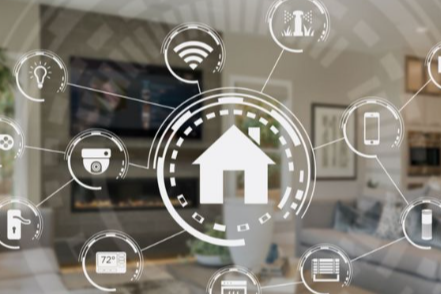The emergence of smart homes marks a significant transformation in contemporary living. These innovations emphasize convenience and security, driven by advancements in IoT technology. Homeowners now benefit from automated systems that streamline daily tasks and customizable features that cater to individual preferences. However, with increased connectivity comes an array of security challenges. Understanding how these elements intertwine is crucial for anyone considering the implications of smart home technology on their lifestyle.
The Evolution of Smart Home Technology
As technology advanced, the concept of smart homes transitioned from a futuristic vision to a tangible reality, reflecting significant shifts in consumer needs and technological capabilities.
Home automation emerged at the forefront, driven by IoT advancements that enabled interconnected devices.
These innovations not only enhanced convenience but also fostered a growing desire for autonomy, allowing individuals to customize their living environments like never before.
Read more: How Technology Is Reshaping the Banking and Finance Sector
Key Benefits of Smart Home Integration
While the notion of convenience is often the most highlighted aspect of smart home integration, the benefits extend far beyond mere ease of use.
Enhanced energy efficiency allows homeowners to reduce utility costs significantly, while user customization enables tailored experiences that align with individual lifestyles.
Together, these advantages foster greater autonomy, empowering residents to create environments that reflect their preferences and values.
Security Features in Smart Devices
Though convenience is a primary draw for many homeowners, the security features embedded in smart devices play a crucial role in enhancing home safety.
Advanced technologies like biometric authentication offer personalized access, ensuring only authorized users can enter.
Additionally, remote monitoring capabilities allow homeowners to oversee their property in real-time, providing peace of mind and further safeguarding against potential threats.
Challenges and Considerations for Smart Home Adoption
The integration of smart devices into homes, while offering enhanced security features, also presents a range of challenges and considerations for potential adopters.
Privacy concerns regarding data collection and storage can deter users, while compatibility issues among different brands may complicate system integration.
Addressing these challenges is crucial for ensuring a seamless and secure smart home experience that empowers users rather than restricts their freedom.
Conclusion
In conclusion, the development of smart homes embodies a harmonious blend of convenience and security, crafting an environment where comfort meets protection. As technology advances, homeowners find themselves enveloped in a cocoon of automation, seamlessly controlling their surroundings while safeguarding their sanctuaries. Yet, as the allure of smart living grows, so too does the need for vigilance and awareness. Ultimately, the journey toward a smarter home is a delicate dance between innovation and responsibility.



